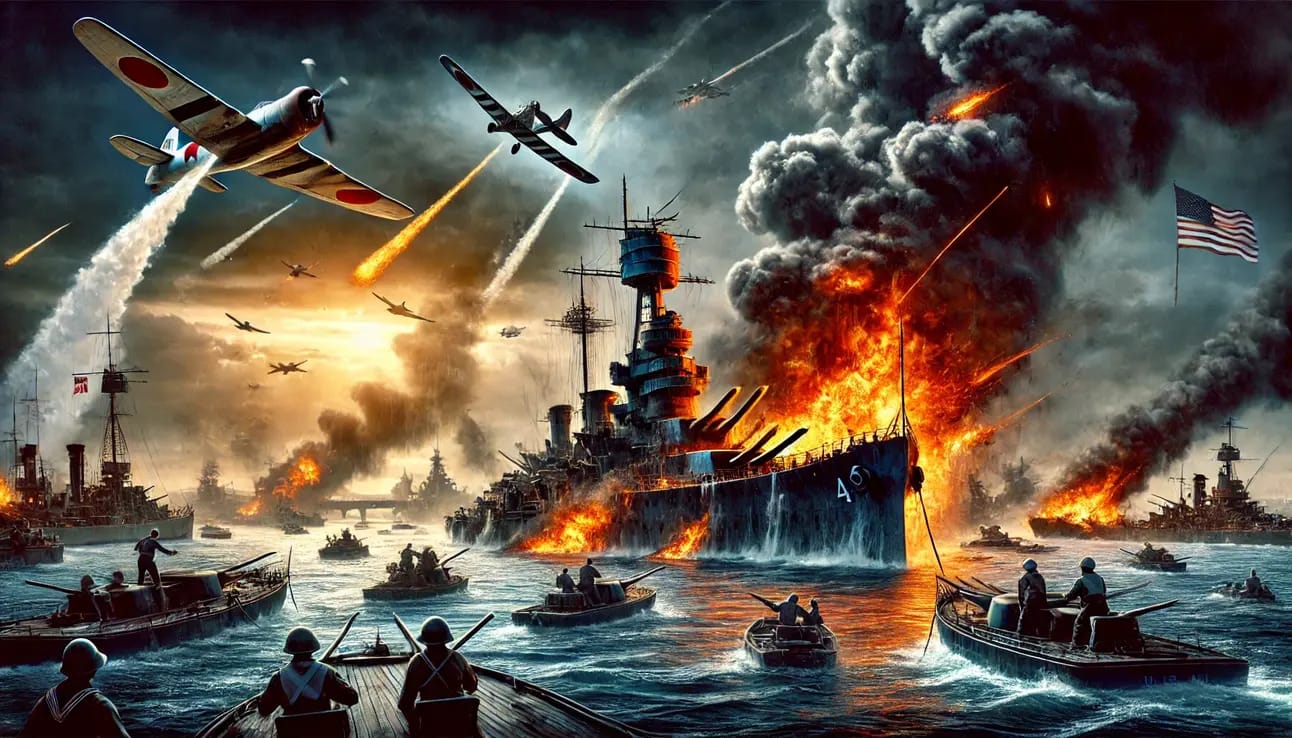- Our Silent History
- Posts
- Interventionism: How the U.S Became the Worlds Policeman
Interventionism: How the U.S Became the Worlds Policeman
From avoiding wars, to starting them. How did we get here?

“Impending Doom'“
Hesitance
Sent to warn the people of Nineveh of their impending doom, Jonah hesitates. He doesn’t want to intervene, doesn’t want to get involved. But eventually, he’s forced into action—swallowed by a giant fish and spit out on the shores of Nineveh, where he delivers his warning.
Much like Jonah, the U.S. spent much of its early years resisting involvement in global conflicts. But as the world spun closer to chaos, it found itself drawn into the fray. The question is, how did the U.S. go from minding its own business to becoming the world’s self-appointed policeman?

Isolationism
From its very inception, the United States made it clear: foreign entanglements weren’t its concern. George Washington’s Farewell Address in 1796 famously warned the nation to avoid “entangling alliances.” The idea was simple: stay out of Europe’s mess and focus on building the fledgling nation.
When the French Revolution broke out, despite France’s crucial help in America’s own revolution, the U.S. remained hesitant. Why? Pragmatism. The young country had limited resources and, frankly, its own problems to solve. The U.S. was wary of getting dragged into European conflicts, understanding that peace at home meant survival.
World War Reluctance
This caution extended into the 20th century. When World War I erupted, the U.S. initially held firm to neutrality, even as European powers bled out. Public sentiment was clear: Americans didn’t want to get involved. It wasn’t until German submarines targeted U.S. vessels that the country reluctantly joined the fray.
The same pattern played out during WWII. Despite the horrors unfolding across Europe and Asia, the U.S. stayed out—until Pearl Harbor. Only after a direct attack did the nation finally step in. Public opinion, once again, dictated the outcome. Americans valued peace and detested the idea of war. It took direct threats to force their hand.

Caution
Interventionism:
After World War II, however, the U.S. emerged as the world's preeminent superpower. The landscape had changed. The Cold War arrived, bringing with it a new kind of responsibility—or perhaps, a new rationale for intervention. The Truman Doctrine in 1947 marked a significant shift. No longer was the U.S. retreating into isolation; instead, it found itself embroiled in global struggles, seeking to contain communism.
Interventionism became the name of the game. Vietnam, Korea, and later, the Gulf War, were all part of this new era where military might was wielded not just for defense, but for influence. With the rise of preemptive wars, like the Iraq War in 2003, the U.S. began to position itself as the global enforcer, ensuring that its interests were defended—whether or not the rest of the world agreed.
Economic and Strategic Motives
Behind the flag-waving rhetoric of “defending democracy” and “promoting stability” lies another truth: economic and strategic motives often drove U.S. interventions. The military-industrial complex, a powerful network of defense contractors and government officials, had a vested interest in keeping wars going. The global arms industry, tied to government policy, ensured that war wasn’t just a necessity—it was a business.
Interventions, it turns out, weren’t always about moral imperatives. They often served U.S. economic interests first, whether through securing oil reserves, opening new markets, or protecting global trade routes. Framed as efforts to spread democracy, these interventions frequently kept U.S. corporations and military contractors well-fed, ensuring that peace wasn’t the only thing delayed.

Struggles
So here we are, decades after the U.S. took its first steps toward interventionism. The role of global policeman has become a heavy mantle, but is it one that promotes peace? Or does it fuel further conflict, resentment, and instability? The balance between protecting global stability and avoiding unnecessary wars is delicate—and one the U.S. seems to be struggling with more than ever.
Food for Thought
Can the U.S. find a balance between protecting global stability and avoiding unnecessary conflicts?
Or has the world’s policeman become too comfortable with its own brand of intervention?